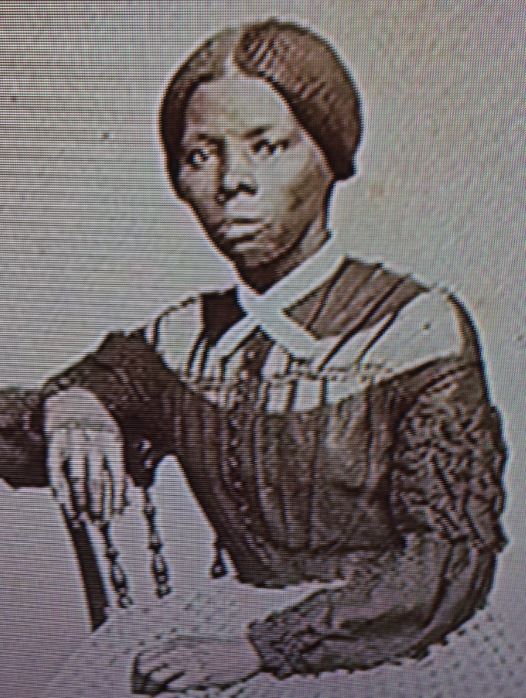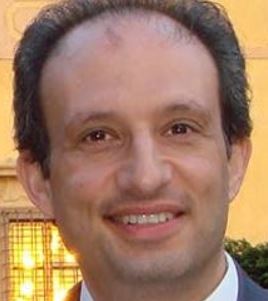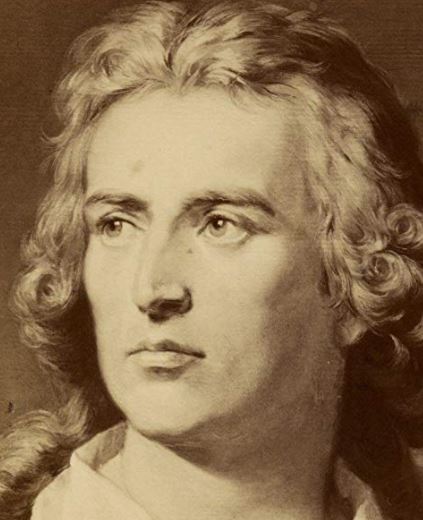

Unfortunately, no pictures of Minty as a young woman have been found. She lived on to become a prominent administrator of the Underground Railroad; a friend of abolitionists Frederick Douglass and John Brown; a Civil War soldier and spy for the Union Army; and much, much more.
The Mint people say it takes a long time to retool the currency. In the case of Minty Ross, it will take at least ten years; maybe fifteen. I’m not sure I believe them.
With Ms. Tubman, it seems like one injustice followed another; she suffered abuse like no other heroine I’ve read about. A slave-owner crushed her skull with a hunk of iron he threw at another slave she was trying to protect. While traveling on a train, passengers broke her arms when she refused to move to another car. All her suffering came from haters, pure and simple. She will never get the credit she deserves.

Does anyone really think the USA will be around ten or fifteen years from now? It is likely to be divided into four countries, presumably under the control of the Russians or an international coalition of foreign powers, if leaked Russian intelligence assessments can be believed.
Sorry, but that’s what seems to be coming, according to Russian analysts. The world has had its fill; the earth’s power brokers are planning to take us down; they seem to be gathering the family of nations to make a grand, international intervention on our behalf — for our own good and for the well-being of the planet and its impoverished peoples.

The Russian military is filling the oceans with drone subs armed with nuclear material; possibly missiles. Some sit in the sand at the bottom of the oceans on both coasts of the USA.
Hundreds of thousands of Russians live on the island of Cuba. They have submarine and air bases on the island.
The Chinese are building artificial islands in the Pacific and constructing military bases. During the past twenty years the Chinese have built the most modern Navy the world has ever seen.
The Koreans and several other hostile countries are building first strike nuclear capabilities. It’s not that they dislike the United States. It’s a matter of trust. They think our leaders are crazy, selfish, arrogant, and too powerful. It’s not good for other countries when one becomes disproportionately powerful.
It’s not enough for the USA to stop doing bad things. It must do good things. We don’t seem able to save ourselves, because the USA has a legacy of a country that has hated too many people; it has hurt and killed too many people.
The USA has burned alive millions of people with diabolical weapons like napalm, Hellfire missiles, and atomic bombs. Most of the world outside the United States believes we dropped anthrax bombs on Chinese troops in North Korea in 1954. We placed a ”hospital” ship off the peninsula from which we spread a virulent strain of typhus that killed hundreds of thousands of North Koreans. We drew up plans to drop atomic munitions until a cessation of hostilities took hold and calmer heads prevailed.
The USA has inflicted too much injustice; ignored the cries of too many disadvantaged people; humiliated the weak and impoverished; and, since the end of WWII, has waged war against a quarter of all the countries on the earth.
We have crossed moral boundaries into the dark space of torture and drone-kills. A country that tortures and assassinates thousands of people by remote control is not worth defending or protecting, some say.

The billionaires are having their parties; for them the world has never been better. In fact, many Americans, rich and poor, are ingesting daily cocktails of drugs, legal and illegal, to keep going; they are oblivious, uninformed, and asleep.
In our drug-induced stupor we are about to elect a mega-billionaire and his cronies to administer what is arguably the most militarized and corrupt nation on Earth. Like everything else we’ve done lately, it won’t go over well. The nations of the world are already preparing for this catastrophe; the outcome isn’t going to be good for any of us; no way.
The refusal of our military officers, our intelligence administrators, foreign service officials, and especially our elected political leaders to follow with enthusiasm the vision of our current president has not been lost on other nations.

Our president’s capitulation to the world view of our bureaucratic cartels; his inability to get the simplest things done (like closing the Guantanamo torture chambers and returning the military base in Cuba to its rightful owner); his surrender to Wall Street thugs with Ivy League educations; his quiet suffering of disrespect by media and petty demagogues has convinced the powerful people abroad who both do and don’t like us that the United States won’t change; indeed, it cannot change.
Meanwhile, our citizens are tired of war. They don’t acknowledge basic facts; the Chinese Navy is the best in the world. Russian drone technology is the world’s best in the air, beneath the seas, and on land. And so on and on.
Yes, our government is spending two trillion dollars to upgrade our nuclear first-strike capabilities. We are spending our national treasure on a doomsday matrix designed to destroy planet Earth, should we get backed into a corner and face certain defeat.
We are so blind. The irony is that we are always looking deep into the heavens searching for advanced civilizations. We believe millions of hi-tech worlds are “out there”. Yet, we have found not a single one. Maybe the story of civilization is familiar; maybe it plays out across the universe on every inhabited planet in the same tragic way.
In every corner of our Milky Way galaxy, and in the trillion or more other galaxies that populate our unimaginably huge universe, intelligent life-forms fight to survive and prevail. They unlock the secrets of nature.
Somehow the technology gets control of them. The unnatural plutonium they create and store, even when it is not strewn in a fit of suicidal anger, leaches into their soils and poisons their planets, irreversibly.

A slow death by poisoning might well be the future of every planet that has buried beneath its surface tens-of-thousands of thermo-nuclear bombs as well as biological and chemical weapons in every shade of depravity that super-intelligent life-forms can dream-up and build.
These weapons cannot be maintained forever. How many thousands of years can we go on pouring our treasure into poisons, until we have no more treasure, and the bombs begin to rot; the toxins soak into soil like turpentine into a sponge; the viruses and bacteria escape to breed and blow in the wind like dust and fall to the ground like drops of rain?
Armageddon is on its way. It may come fast; it may go slow. What every informed person knows is that Harriet Tubman’s face will never grace our currency. Time is too short, and making things right is not our nation’s highest priority. Not even close.
I believe, like my dad before me, that right makes might. Civilizations who dare to reverse the order — who use might to force others to believe that their abusers are right — play a fool’s game.

One important thing we can do as a country right now is to place Harriet Tubman’s portrait (and other freedom fighters like her) on our money, sooner rather than later. The plan, incredibly, is to put a slave-owner’s picture (Andrew Jackson, of all people) on the reverse side of the twenty-dollar bill opposite Ms. Tubman — to kind of balance out the message, I suppose.
No. That’s wrong. No way. Andrew Jackson owned the Hermitage Plantation of Tennessee and another plantation in Mississippi where, during his tenure, 150 slaves produced the cotton that made him wealthy.
As a General in the US army, Jackson fought genocidal wars against the Shawnee and Creek Indians of Georgia and Alabama; he warred against the Seminole Tribes of Florida. He had a reputation for ruthlessness. Native Americans referred to him as ”Sharp Knife.”

No slave holder, no human being who forced other human beings to work long hours for no pay under the threat of lash and beating; under the threat of death and loss of family should ever again have their likeness placed on any financial instrument, coin, or bill of the United States of America. What kind of people are we, anyway?
We are a people who stand for freedom and equality before the law, our schools teach us. Let’s behave like we believe it’s true. Crimes against people affect the generations of children who come after. Genocides against African slaves and native Americans can traumatize for centuries; ask any descendant of a victim of Hitler’s holocaust, if there is anyone who doesn’t believe it. The USA has not even begun to make things right, some argue.
Actions speak louder than words. The world watches, much of it in disgust and horror as we venerate the wicked and suppress our saints, like Araminta Ross Tubman. Time is running out. We have to make that change, as Michael Jackson once sung; sooner rather than later.
Loving others is a way to save our beloved America. Love will rescue us. Love is important; it’s powerful. It can sustain our civilization; it can preserve our freedoms; it can extinguish Armageddon.
Billy Lee


















